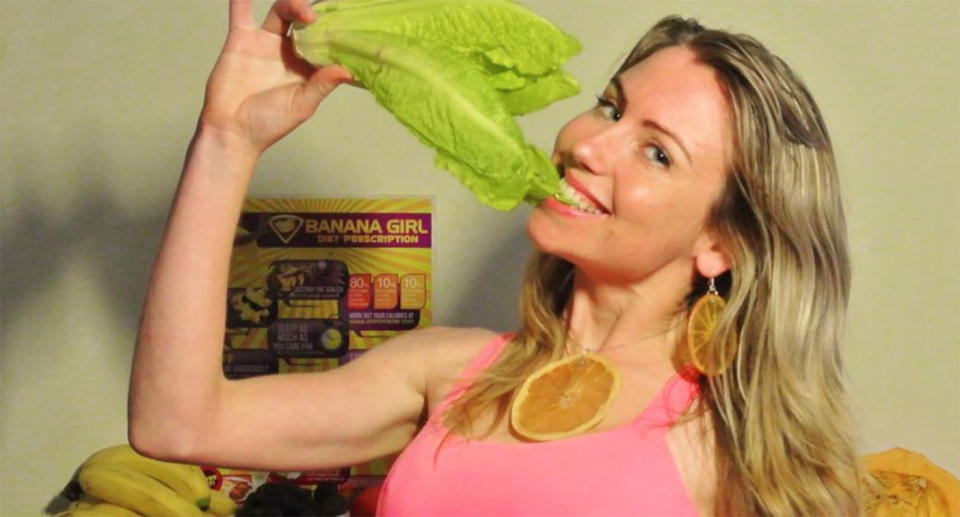'Wake up and smell the carcass': Vegan blogger blames bushfires on meat-eaters
A controversial Australian vegan blogger has blamed the nation’s bushfires on meat-eaters, claiming “meat, dairy and eggs are the fuel”.
Queenslander Leanne Ratcliffe, who blogs under the name Freelee The Banana Girl, posted a YouTube video on Monday sharing her despair over the damage the bushfires have caused.
And she’s put the blame on people who consume animal products.
"If you are Australian, and you eat animals and their secretions, then you are a big part of the problem,” she says.
"Australia is on fire, and meat, dairy, and eggs are the fuel.
"We are heading for doom because you still want to eat like a barbarian."

Ms Ratcliffe claims emissions from animal agriculture are to blame for climate change.
She adds every time you line up at the supermarket and pay for animal products “you throw petrol on your backyard fires”.
“The burning will not end until your flesh-fetish ends,” she says.
Vegan’s claim garners mixed response
The blogger’s video has received a mixed response for a number of reasons.
Some people denounced her mentioning climate change as a factor for causing the bushfires.
While others thought the claim animal products are a contributor to the horrific fires is “nonsense”.
“How about no,” one woman wrote.
Another simply called the video “nonsense” while another wrote “the fires were started by arsonists”.
However, the comments were largely positive with one woman writing, “I support everything you say”.
“This is genuinely the most inspirational video I’ve ever watched,” another woman wrote.
Could eating meat contribute to climate change?
While some people denounced there is a connection between climate change and meat consumption, Ms Ratcliffe isn’t alone in that assessment.
It is estimated more than a billion animals have been wiped out from the fires which have been raging since September, according to University of Sydney ecologist Professor Christopher Dickman.
Professor Johan Rockström at the Potsdam Institute for Climate Impact Research in Germany told The Guardian in 2018 we’re being left with two choices: “greening the food sector or eating up our planet”.

Professor Rockström was one of a number of researchers who contributed to “Options for keeping the food system within environmental limits” published in the journal Nature.
It was submitted to the United Nations and claims “the food system is a major driver of climate change”.
Part of the paper analyses “flexitarian” diets “that more comprehensively reflect the current evidence on healthy eating by including lower amounts of red and other meats and greater amounts of fruits, vegetables, nuts and legumes”.
Change of diet could reduce emissions, expert says
The researchers estimated a change to diets could reduce greenhouse gas emissions for 2050 by 29 per cent and “other environmental impacts” by five per cent.

Professor Peter Smith at the University of Aberdeen, who wasn’t part of the research team, told The Guardian the “evidence is now unequivocal”.
“We need to change our diets if we are to have a sustainable future,” Professor Smith told publication.
“The fact that it will also make us healthier makes it a no-brainer.”
An article published by the United Nations Environment Programme in 2010 found “food production is the most significant influence on land use and therefore habitat change, water use, overexploitation of fisheries and pollution with nitrogen and phosphorus”.
It added in “poorer countries” it is “the most important” cause of greenhouse gas emissions.
However, it added along with meat and animal products non-seasonal fruits and vegetables cause “substantial emissions when grown in greenhouses, preserved in a frozen state, or transported by air”.
Do you have a story tip? Email: newsroomau@yahoonews.com.
You can also follow us on Facebook, Instagram and Twitter and download the Yahoo News app from the App Store or Google Play.




